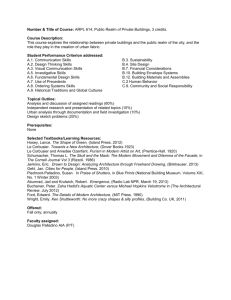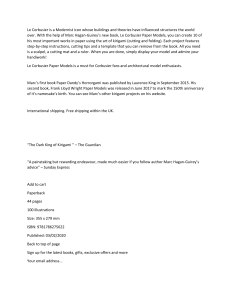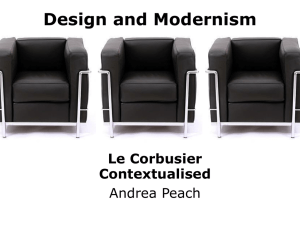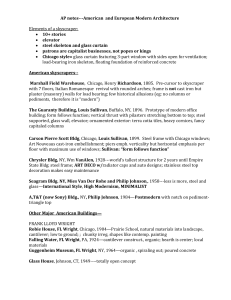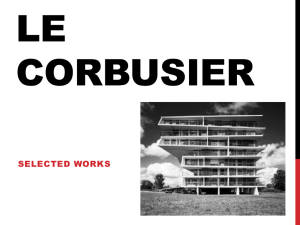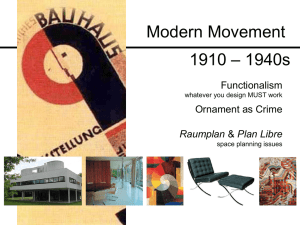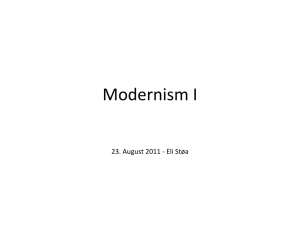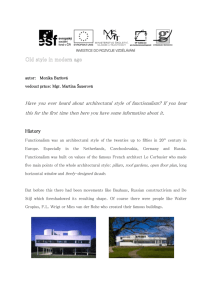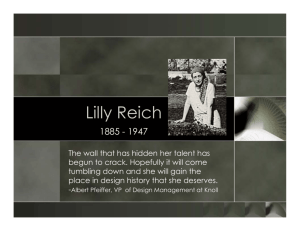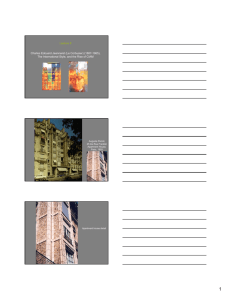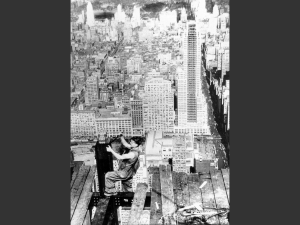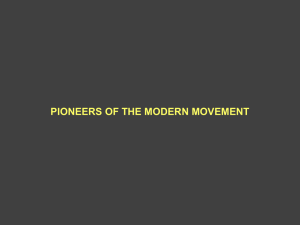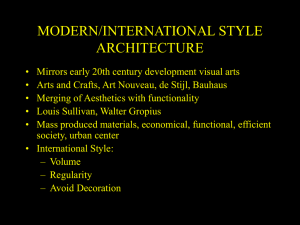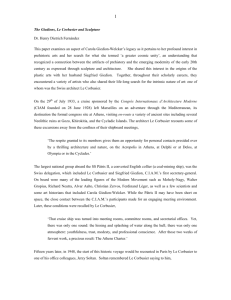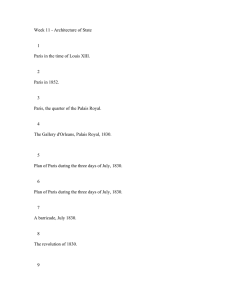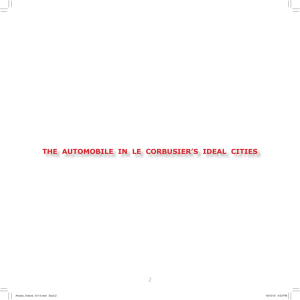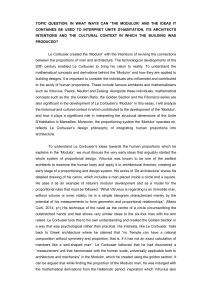Le Corbusier - the Redhill Academy
advertisement
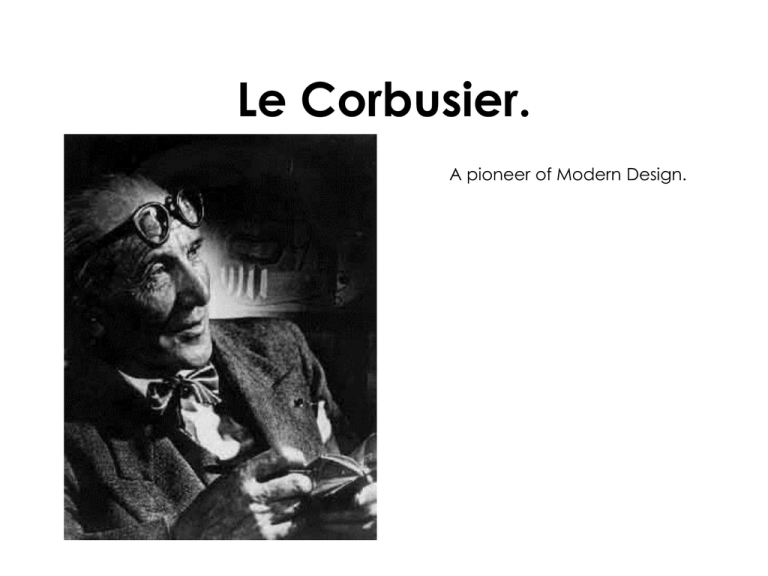
Le Corbusier. A pioneer of Modern Design. Le Corbusier. ( 1887-1965) Born Charles Jeanneret in a small town in Switzerland, he became a pioneer of Purist Modern design. In 1922 he published “ Vers une Architecture “ (Towards a New Architecture) in which he argued that a house was “ a machine for living in “ free of all decoration,clear, transparent,modelled on the forms of aeroplanes and ships. “The Modulor.” Le Corbusier was fascinated by Renaissance ideas of scale and proportion,and devised his own ,modern system based upon the proportions of the human body. He called this the Modulor, and based the proportions of his furniture and buildings upon it. His vision extended to social housing and town planning: He was one of the first to propose high-rise blocks of flats set in parkland, the model for estates world-wide including the famous Roehampton estate in S.W.London. He built experimental houses for the Great Exhibitions of his day, including the Paris Art Deco exhibition in 1925. Le Corbusier, together with his cousin Pierre Jeanneret and Charlotte Perriand also designed innovative new furniture in steel and leather with which to furnish his light, bright interiors. These have now become design classics, and originals can command very high prices at auction: Famous designs include the “Confort ” chair and the lounger, seen on the right. Villa Savoie, 1929. In 1929 he designed this house which fully embodied his ideas: A concrete box, open at the corners, raised on columns ( “pilotis” ), white, and set in open countryside. The interior was openplan, sparsely furnished, and fitted with all modern conveniences. Villa Savoie: Exterior. Poissy, France. This Modernist monument has recently been restored to its original state and houses a museum dedicated to the work of Le Corbusier. Ronchamp, France. In later years, Le Corbusier moved towards more organic forms, such as the stunning chapel at Ronchamp and new Parliament buildings in Chandigarh in India. His early architecture and designs were often criticised as being too cold and clinical, but later works showed a warmth and spiritual side. The interior of Ronchamp makes dramatic use of stained glass and simple materials to evoke a calm and contemplative mood. Le Corbusier was hugely influential and his work was much imitated, although often his more Utopian ideas were rejected for economic reasons: Post-war housing schemes across Europe saw highrise as a quick, cheap, and modern solution to slumdwelling, and an easy way to reconstruct cities devastated by bombing. The International style. Influenced by both the Bauhaus and Le Corbusier, a generation of young designers began to work in a similar manner: They exported the theories and produced functional Purist designs for a huge variety of products. Many Continental designers had been forced to move due to political unrest, and found their skills much in demand in Britain and America. Penguin Pool, London Zoo: Berthold Lubetkin. One of the first Modernist buildings in Britain. Lawn Road Flats, Hampstead,London. This block, styled like an ocean liner, housed the sophisticated clients of the day: Agatha Christie lived here, as did several Bauhaus refugees. There was a bar and restaurant in the basement so residents didn’t have to cook! Isokon Furniture: The block also contained a furniture factory, called “Isokon”, where all the furniture for the flats was made. Isokon also sold their products from showrooms here. Furniture was very simple, often made from cheap and easily available materials like plywood, as steel was still in short supply. Isokon “Long Chair” ( 1936 ) This chair, made from bentwood and thin ply, was designed by Marcel Breuer and made at the Hampstead factory. “Ekco” radio designs: The E.K.Cole radio company commissioned the young designer Wells Coates to create a modern style product. Coates used Bakelite ( an early type of plastic) to make simple and stylish casings. These examples date from 1932 (top) and 1934. De La Warr Pavilion, Bexhill, Sussex ( 1935 ). This seaside ballroom and sun deck was designed by Erich Mendelsohn. He had been forced to leave Nazi Germany, but found work in Britain, pioneering the International Modern style here. This building has recently been restored to its original condition. Trellick tower, Queensway, London. This tower, designed by Lubetkin, has been much-derided in the past, but has now been renovated. It is a listed building, and flats here are much sought after and command very high prices. A late example of Modernism in Britain.
